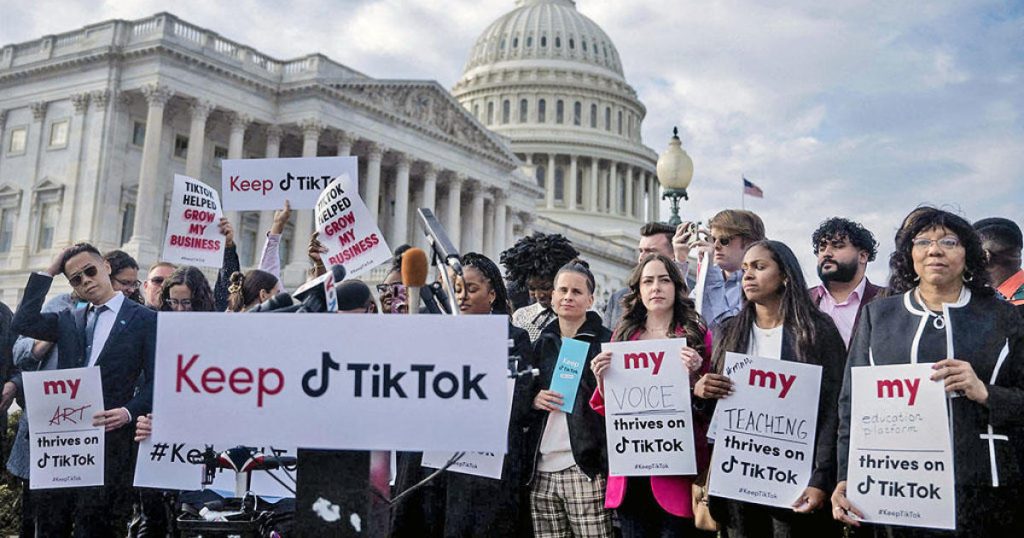TikTok and its parent company ByteDance filed a lawsuit against the Justice Department over a new law requiring the platform to sever ties with its China-based owner within a year. The law, signed by President Biden, was deemed unconstitutional by TikTok, as it would effectively ban the platform in the United States and violate users’ First Amendment rights. The lawsuit calls for blocking Attorney General Merrick Garland from enforcing the measure and was filed in federal court in Washington, D.C. against Garland.
The foreign aid package passed by Congress included a provision that required ByteDance to sell its stake in TikTok within a year or face losing access to app stores and web-hosting providers. TikTok stated that the divestiture within the specified timeline is not feasible, citing the Chinese government’s opposition to selling the technology that has made TikTok popular in the U.S. The company argued that the law would force a shutdown of TikTok by 2025, affecting 170 million American users who rely on the platform for communication.
TikTok came under scrutiny by Congress due to concerns about its ties to China and potential threats to national security. U.S. officials raised alarms about the app being used for spying or influencing the public on behalf of the Chinese government. Lawmakers from both parties expressed concerns after classified briefings on the matter, leading to the decision to push for TikTok’s divestiture. TikTok’s legal challenge to the law was expected, as the company had pledged to contest its constitutionality and protect user data from foreign government influence.
Rep. John Moolenaar, a Michigan Republican, stated that Congress and the executive branch identified TikTok as a national security risk, prompting the measures against the platform. He criticized TikTok for choosing to litigate rather than addressing the concerns by cutting ties with the Chinese Communist Party. While concerns about TikTok have escalated in recent years, with several states banning the app on state-issued devices, attempts to block the platform at the federal level have faced legal challenges over First Amendment grounds.
Despite concerns about TikTok’s security risks, several political figures, including President Biden’s campaign and members of Congress, have accounts on the platform. TikTok argued that banning the platform undermines claims of an actual threat to Americans and mischaracterizes the intent behind the app. The company has emphasized its efforts to safeguard user data and platform integrity through initiatives like “Project Texas,” aimed at protecting U.S. user information. TikTok’s legal battle against the law highlights the ongoing debate over privacy, national security, and free speech in the digital age.


